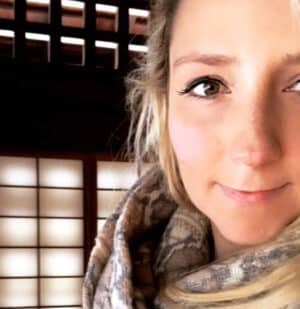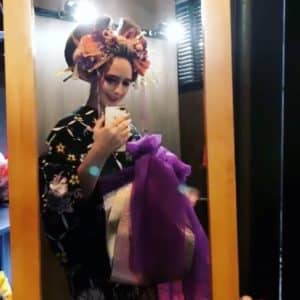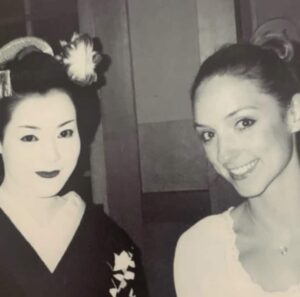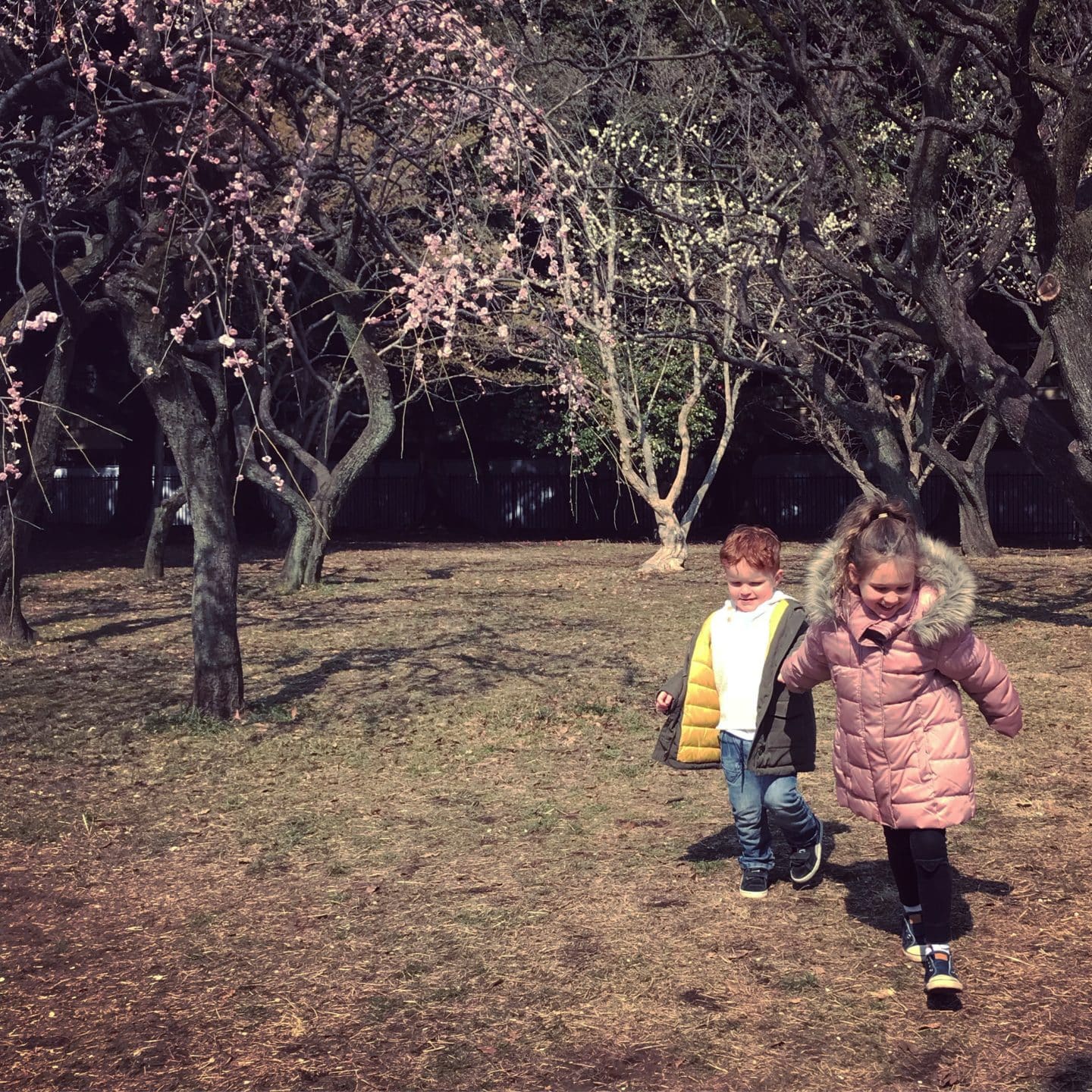
I’ve had a few parents worried about preparing for situations such as a child getting lost or separated from the family.
I can only share what works for us but even for one of the safest places in the world – here are our “family rules” when travelling in Japan.
I hope this helps or inspires you to make some family rules ahead of time – or even just have some little chats beforehand – if you want to.
You might also like my blog post called ” For that anxious parent moment in Japan.”
If you worry about how Japan works with noisy kids – I think you’ll like to read my thoughts here.
1. People over belongings – every single time
A suitcase left on a train about to leave a station with my family standing on a platform?
It can just stay there as we won’t risk splitting up over a few personal items.
Added bonus – Japan has incredible lost property systems in place so there is a very high chance you will actually get your belongings back. (Cheat sheet tip if you need to ask anyone for assistance – the word for lost property is wasuremono)
If you leave something behind in a taxi – hold onto your receipt. It will have the particular number to call to reach that particular fleet of taxis and will also include the time stamp and even, sometimes, the driver’s name.
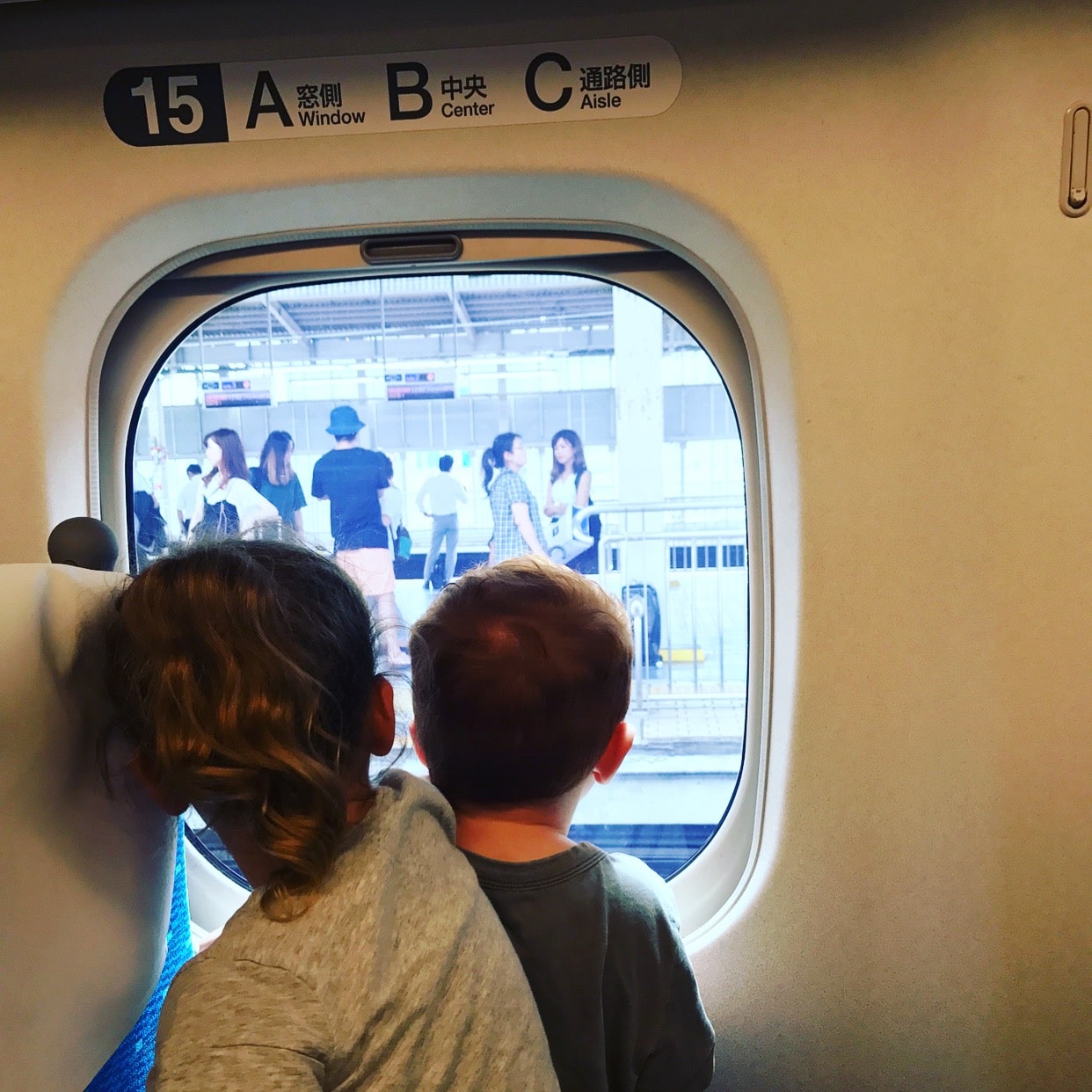
2. Kids never get out of a taxi without an adult
I think this rule applies for any country BUT even more so in Japan because the backdoor of a cab opens automatically in Japan – or, I should say, with the push of a button by the driver- while you’re settling the fare (I’ve written more about taxis for families in Japan here.). For this reason, we have a rule that no-one is to leave a cab without an adult first checking if it is safe.
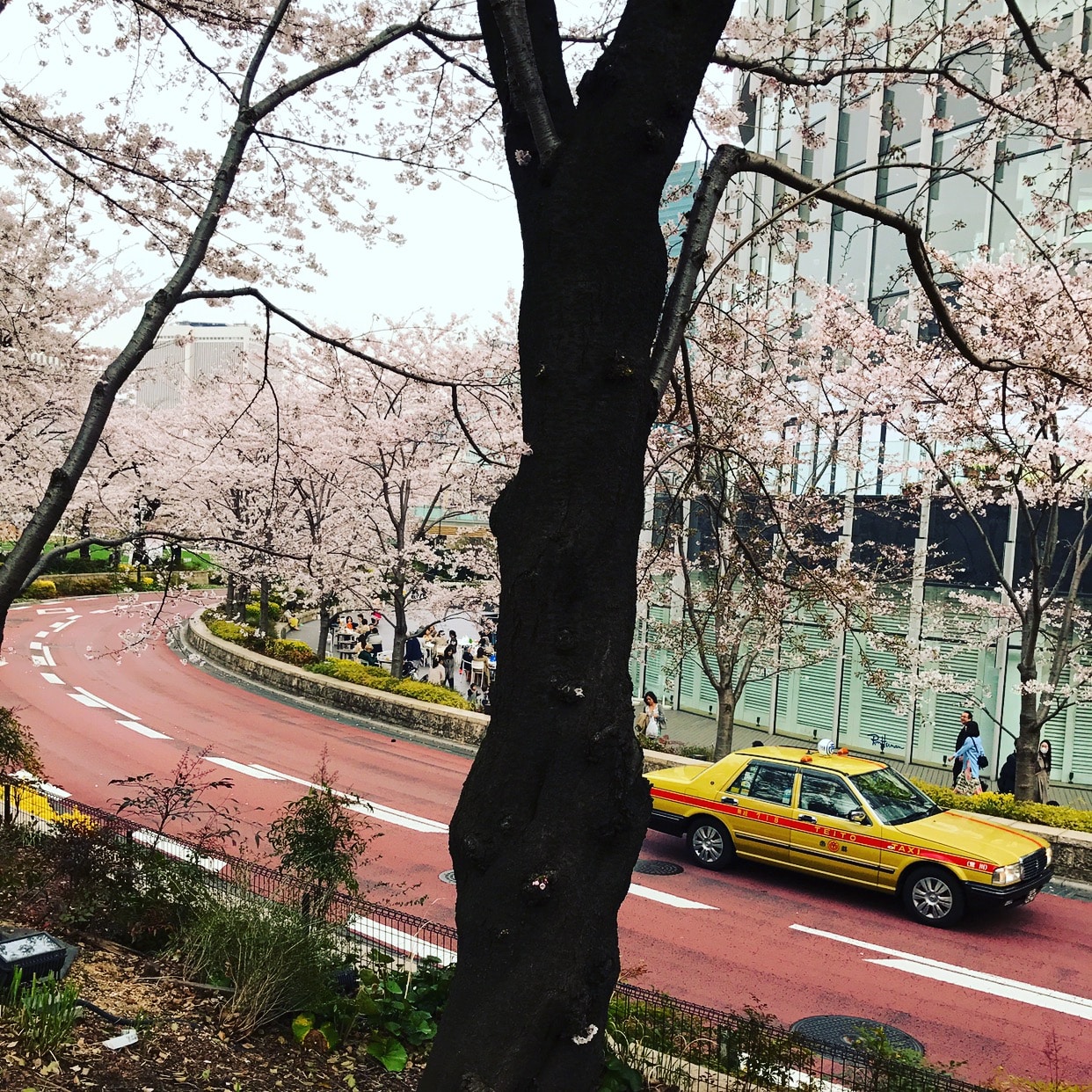
3. If we are separated on a train, we get off at the next stop and wait on the platform
We are lucky that this has never happened to us before, but in case a child is ever on a train and the doors close etc. our standard plan is to get off at the next stop and wait on the platform. Fortunately, trains in Japan are frequent so this is rarely a tricky task -which leads me to my next point….
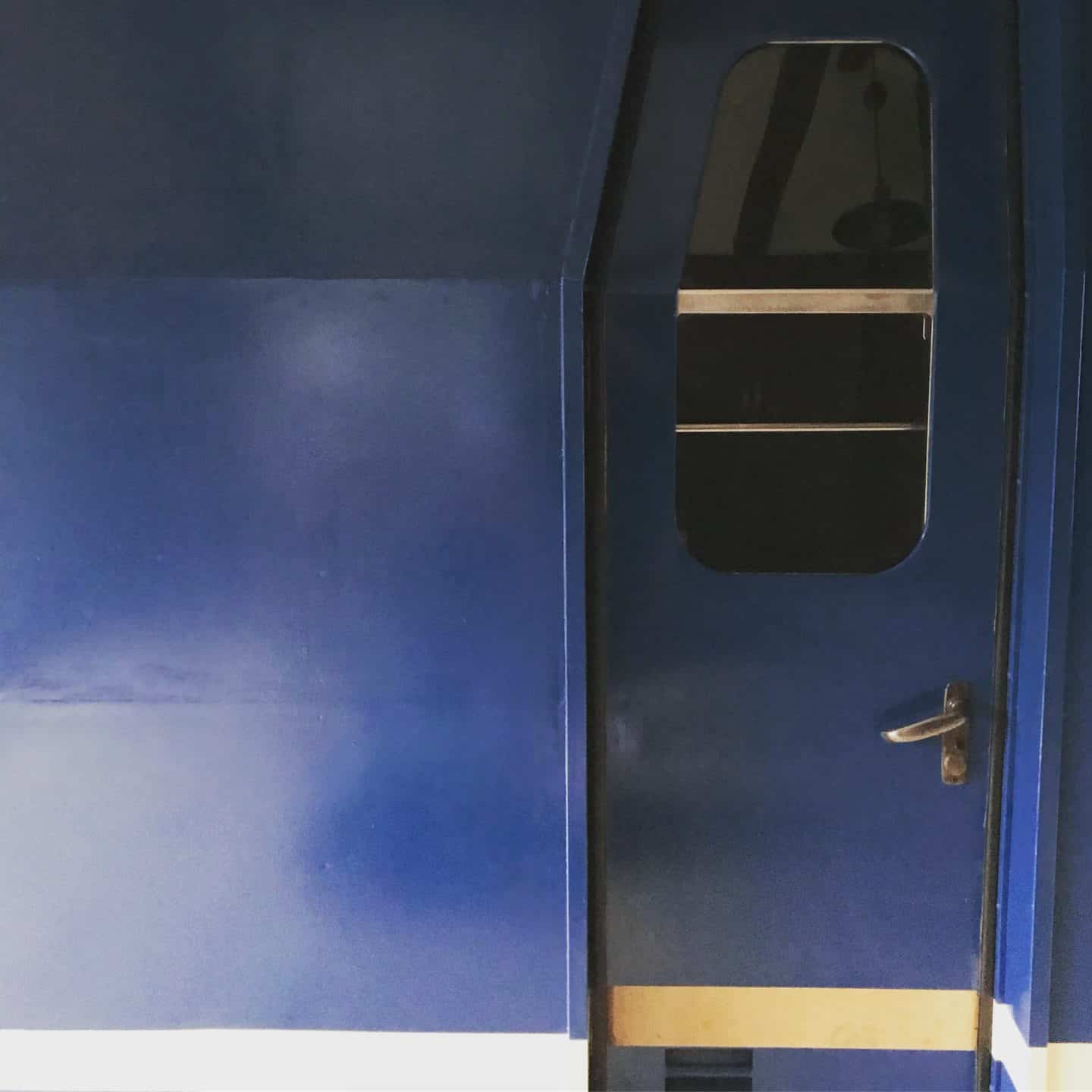
4. No-one runs for a train or a bullet train
Trains run frequently in Japan so, unless it’s the very last train around midnight? No need to run for a train at all. There are signs in all Japanese train stations asking passengers not to run for a train for safety reasons.
Even if you have a seat booked for a bullet train on a reserved carriage and you miss that particular train? You can still board the next train…you’ll just need to ride in the unreserved carriage.
When riding bullet trains with kids-for this reason we always arrive 20mins or so before the train departure time ( I recommend 30 if you’re not used to bullet trains yet.). I have shared all of my shinkansen (bullet train) with kids tips here.
I recently heard another good tip: If travelling with two adults -a rule of one adult first through the ticket gates and on the train and one adult at the back of the train procession – for obvious safety reasons.
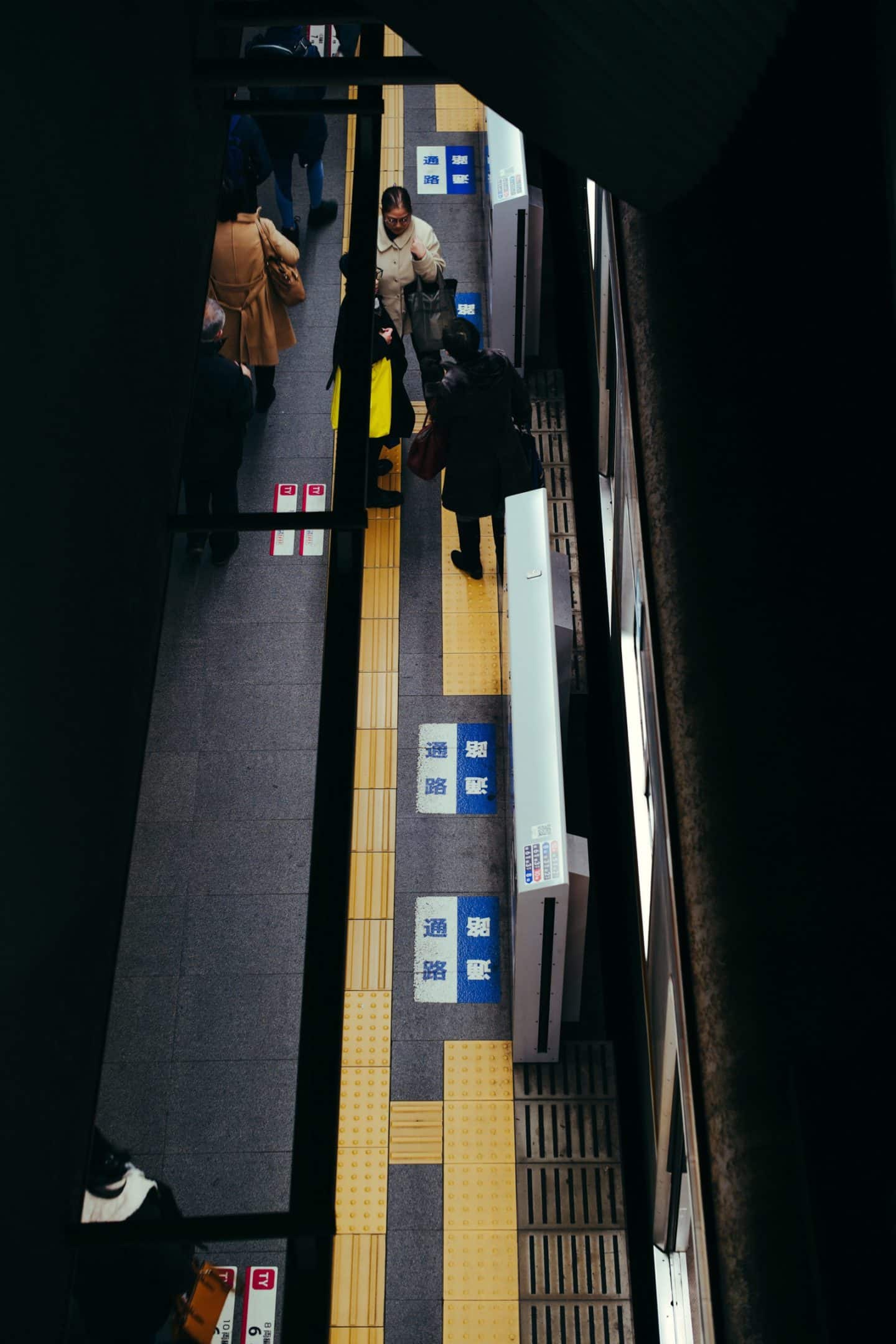
5. If we (children) get lost, we ask a Mum with children for help
This is our rule wherever we are in the world. I just feel that statistically a Mum who is with a child is more likely to empathize with the worries of a child and the parent of a lost child. We also try to remind our kids stay put if they get lost so they are easier to find – but this is really really hard for a freaked out little one.
I have written some useful phrases in Japanese to use if you are looking for a lost child.
I’ve also spoken about this in my Japan with kids: What to Pack blog post – but more and more people are asking me about having their children wear or carry AirTags. I haven’t done this before so I’m not sure how it all goes – BUT I have heard from a number of parents that the AirTag location isn’t always really easy to find in the built up, big cities.
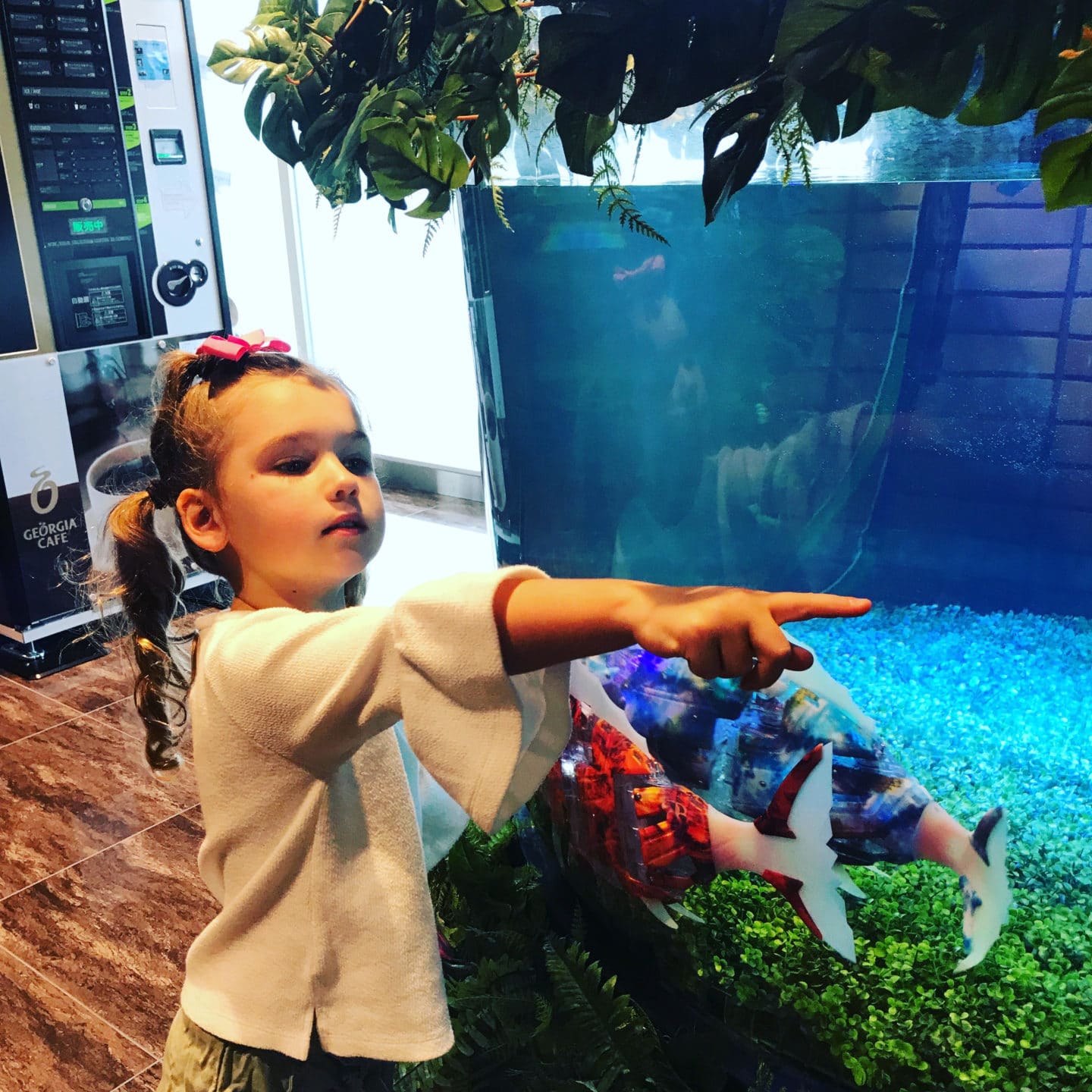
6. Hotel business card or a Parent’s Number in their pocket
This is easier with children passed the toddler stage but this is just a piece of mind trick that we have done occasionally if we are attending a fireworks festival or a summer matsuri. It also helps to ask your children to remember their parents full names – not just Mum and Dad.
If you like my tips like this I think you might also like my post on what to do in a medical emergency in Japan as well as our family earthquake plan.

